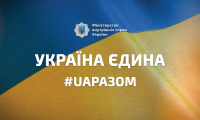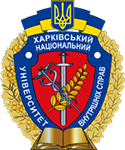Round Table ‘Erasmus+ Webinar for Ukrainian Youth: from Training to Studying Abroad’
On 17 September 2025, the College hosted a round table called ‘Erasmus+ Webinar for Ukrainian Youth: from Training to Studying Abroad.’ The speaker of the event was Inna Ryshkova, a senior teacher at the Department of Management, Social Sciences, Humanities and Fundamental Disciplines. The focus was on the format of participating in trainings, study exchanges, short-term internships, and academic mobility, as well as real tools to navigate projects, overcome barriers, and initiate one's own participation.
The meeting was based on meaningful and dynamic interaction. Participants joined the interactive Kahoot quiz, went on a virtual trip to Armenia as a part of the Erasmus+ project (‘Mindful Pathways: Wellbeing tools for youth work!’), learned how to search for interesting projects, and took part in the workshop on writing application forms.
Particular attention was paid to exploring modern platforms and resources for finding international projects. The participants discussed key advantages of participating in Erasmus+ programmes, such as developing language, communication and flexibility skills, earning academic credits, and gaining international experience. They also spoke about the challenges, including overcoming cultural and psychological barriers.
The experience of participating in the Erasmus+ programme was presented by invited online speakers: Sophia Lendiuk (study under the academic mobility programme for students at The Hague University of Applied Sciences, The Hague, Netherlands; participant of 10 Erasmus+ projects) and Jane Shtefanek (Trenchyn, Slovakia) – active participant of EU educational programmes.
The college was represented by: Olena Tsymbalisova, Deputy Director of the College for Educational and Scientific Activities; the Educational Process Organisation Department: head Olena Chernikhova, head of Practical Training Department Oksana Borysenko, specialist Inna Yakymets, specialist Yana Unkovska; the Department of Management, Social Sciences, Humanities and Fundamental Disciplines: head Maryna Kiriukhina (PhD (vocational education)), teacher Inna Deriabina, teacher Daria Riabtseva; the International Relations and Interuniversity Work Group: translator Yuliia Onyshchenko, specialist Svitlana Stelmakh.
At the end, an online survey was conducted via Mentimeter, where participants shared their feedback and developed their own action plans. The round table ended with conclusions and practical recommendations that inspire to join international programmes and systematically develop one's professional and communication skills.









